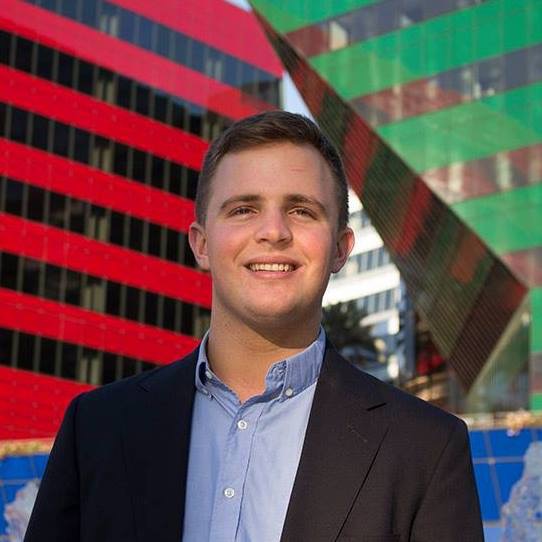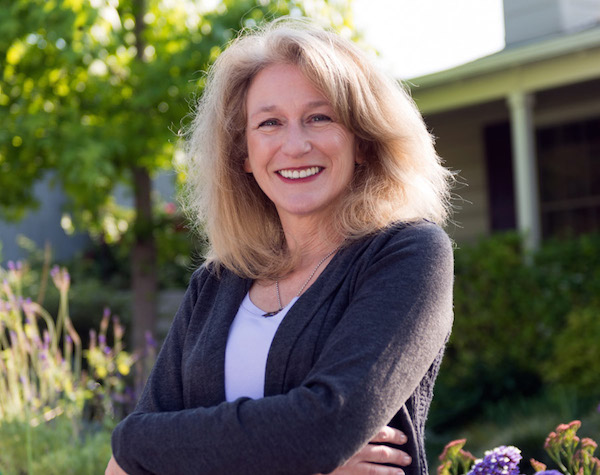
During every West Hollywood City Council election campaign, WEHOville invites the residents of West Hollywood to write us and note the issues that matter to them, the issues they want their candidates for City Council to focus on.
Today we are publishing the second and third in a series of questions from the Citizens Agenda and answers to them from incumbent candidates and challengers. New questions and responses will be published each Monday. Noted below are those candidates who have not responded questions from the citizens of West Hollywood. The question, and answers, published on Jan. 14 can be found here.
2) A major issue in West Hollywood is development, with some residents arguing that the city is too densely populated and shouldn’t allow construction of housing for additional residents. Others argue that growth is inevitable but must be carefully managed, and that the addition of more housing is the only way to slow the dramatic increase in local housing costs. What is your stand on this issue?
3) West Hollywood was founded by advocates for rent control who wanted to preserve the city as an affordable place to live. State law has gutted some of the rent-stabilization protections provided by city law, and West Hollywood now is an expensive place in which to rent or own. What can the city do now to make West Hollywood a more affordable place to live for everyone, and specifically for the young, the disabled and seniors? And what can the city do to encourage the development of more income-based affordable housing?
JOHN D’AMICO

2) The continued development of housing is critical not just for West Hollywood, but for the region and the state. Our city has consistently met the state-required housing production goals, including affordable housing goals – a formidable challenge and something all residents should be proud of. I do not believe that that production of housing in West Hollywood will ever affect regional housing costs, but it will affect the overall amount of permanently affordable housing we produce within our borders.
If the City of Los Angeles had adopted the same 20% set aside goals we have had for the production of new housing we would not have the severe affordable housing crisis we have today. West Hollywood has maintained a consistent total population (number of residents) for the past 30 years. The area around West Hollywood has seen an increase both in the number of units and the number of persons per unit. This has led to additional density and population. I do think WeHo can do more to protect and enhance our existing rent-controlled housing stock, but new housing production pressures will continue to be a priority for our city, the region and the state until we have built our way out of the long-term housing crisis. And affordability will rise and fall with wages and economic conditions as it has for the past 35 years.
3) Our current rent control laws are among the strongest and most secure in the state and strictly enforced by our Rent Stabilization Department. Almost every day there is a new person or persons assisted by the department, helped to keep their housing in good working order with all the benefits of the housing that they pay for. These laws have been critical to the long-term stability of so many residents, providing affordable housing that has served this community for two generations (since 1984) and will for generations to come.
The City Council and our ordinances will continue to press developers to include 20% of all units as affordable units in all housing development projects over 10 units and to fund the West Hollywood Community Housing Corporation in its ongoing program producing affordable units in stand-alone buildings with dollars from in lieu fees, the housing trust fund and the general fund.
In addition, we continue to maintain and fight for the expansion of our rent control ordinances and laws, keeping people safe in their homes. Finally, the city has aspirations to improve existing rent-controlled buildings, upgrade their seismic stability as well as their sustainable systems, electrical, plumbing, mechanical, roofs and windows — making our existing housing stock stable and available to new generations of residents.
Our inclusionary housing program (units from the 20% required set aside) has built 421 permanently affordable units in West Hollywood in the last 30 years. That is coupled with 459 units of non-profit built units in standalone buildings, 366 units from the county/HUD, 150 Section 8 units and 710 Section 8 vouchers. That is a total of 1,692 households that receive some type of subsidy that keeps people — young people, the elderly, the disabled, formerly homeless people — in their housing and keeps that housing affordable. That is nearly 10% of all rental housing in the city, the majority of which has come on line in the past eight years. And still we are committed to doing more.
Going forward, I am working on a proposal that will come to City Council this year that expands the housing opportunities on surface parking lots, potentially increasing affordable units and housing generally while addressing the environmental problem of surface parking.
JACK CLINE
No response.
TOM DEMILLE

2) Growth in our community is inevitable, however I believe that many residents feel more like they live in a construction site rather that a city. The reason why is interest rates. Our quality of life I feel is in the decline as this current Council’s continued engagement with developers and not our residents. We must do both.
Just driving and walking down our streets, residential sections all over town in real need of repairs, many places left in the dark, with the numbers of our residents and guests having their cars broken into at an alarming rate. Nothing gets done about this for 20 years that I remember. While our city get bigger and bigger, it’s hard to just get around. I will dedicate my time working with our residents to make West Hollywood that place we all imagined it would be.
Micro units for our young people who want to live here would benefit all of us in WeHo. While the average age is rising, these young residents will work in our stores, businesses and homes and help us all cross our dangerous streets.
3) The very creation of West Hollywood will tell you with certainty that when the residents come together, there is nothing we can’t do.
Tax breaks to our land owners to build micro units for our young, seniors and disabled community. I am a man who has lived with AIDS for 20 years, and who lives in The Actors Fund building on Palm Avenue. I dedicated my building in 1998. Since then we have lost 40 residents, but everyone had a safe, clean home to live out their lives.
Aging in place is also very important to me, All we have sometimes is each other, so it is important to stay connected with each of our West Hollywood family members. That’s the way I see it. You really rise up and stay strong when you lose 40 neighbors. That’s what gives me the strength to lead my city.
Let’s all come together to change that law.
BRENDAN HOOD

2) The sky-high cost of housing, along with climate change, are two of the greatest social justice issues of our time.
The only chance we have at addressing both is by building more homes in the centers of our cities. That is why I strongly support efforts to increase the construction of both market rate and affordable housing units in West Hollywood.
West Hollywood can’t solve these problems alone. But like with so many social justice issues before, when West Hollywood takes a leadership role, change happens. If elected I will use my position to advocate for increased home construction across the region.
3) First and foremost, I would defend the existing rent stabilization ordinance. But that only protects current residents living in apartments built before 1980 (and the handful of people who have been renting condos and single-family homes uninterrupted since 1995).
As that old stock gets replaced (for safety reasons, to be replaced with more dense housing, etc) the amount of housing covered by rent stabilization will decrease. Thus, the only way to improve housing affordability long-term is to allow a lot more housing to be built through zoning changes, and to pressure neighboring cities to follow suit.
We also must look at non-zoning policies that could deter development. While requiring 20% of new housing (for buildings with 10+ units) to be set aside for affordable housing sounds good on paper, it’s useless when very little new housing is built, and counterproductive if it’s set so high that it makes new construction financially not feasible for developers.
Assuming new development does take place, it will cause an uptick in the displacement of current residents as their existing buildings get replaced, either with new apartments or with condominiums. The city can mitigate the impacts of this for residents who are either low-income, disabled or are seniors (or some combination of those) by increasing its funding of the Inclusionary Housing program, and, if necessary, purchasing additional properties for use as affordable housing, as no at-risk resident should be forced to re-settle, even temporarily, in an area far from West Hollywood.
LINDSEY HORVATH

2) The whole of LA County is in a housing crisis, and West Hollywood has consistently been one of the only cities in the state that meets our state-mandated housing numbers. Because other communities haven’t done their part, we are experiencing an epidemic of homelessness that would only get worse if we stepped away from our commitment to creating housing. We must do our part to address the housing crisis we see in our community and beyond. The housing we are building provides new people with the opportunity to live in West Hollywood – an opportunity that so many of us enjoyed since we moved here – while also providing affordable options for people who are at risk of losing their housing due to the rising cost of rents.
That said, while I support increasing our affordable and attainable housing stock, we must do so with current communities in mind. We need new transit to support our existing residents and address the impacts from new development like traffic congestion. To that end, I’ve been working regionally to advance the Crenshaw Northern Extension to provide rail as another transit option for our community. I’ve also worked with my colleagues to require construction mitigation plans for neighborhoods that have more than one project active at the same time, and those plans are required to be sent to all neighbors to those projects so everyone can be informed.
I also work with my colleagues in other cities through the California Contract Cities Association and the California League of Cities to identify incentives for regional transportation projects to reduce the traffic and parking impacts we see in our neighborhoods, as well as to oppose legislation that would take away the city’s ability to responsibly manage development as envisioned by our General Plan.
New development must be ushered into the city transparently and responsibly. We can grow as a city and do so while protecting existing neighborhoods. When development is done right, it becomes a community benefit for all to enjoy.
3) First, the city needs to continue the fight, along with other cities throughout California, to return the California Redevelopment Agency funds to the communities where they’ll be put to good use – especially for the creation of affordable housing. This is a priority issue I’m working on with the California Contract Cities Association and the League of California Cities.
We also need to reimagine what kind of housing types we’d like to make available in the city, and then make sure our code allows for them. I hosted a panel discussion with industry experts to talk about housing policy from the point of view of state law, a local policy maker, and an architect trying to build according to our code. We also hosted a half day Creative City-Making symposium – co-sponsored by Councilmember Meister and me and unanimously approved by the Council – to help educate the community on the types of housing available and the kinds of environments in which they work. It was a huge success and has helped to inform how we thinking differently about the possibilities for housing.
We need to take those new ideas and transform them into good policy that makes sense in our neighborhoods. Since I was elected, I have led my colleagues to change the code to incentivize the creation of live/work space and workforce housing, which is increasingly attractive to young creative professionals in areas like downtown L.A.. The Council also unanimously approved my proposal to remove fees for accessibility improvements to historic properties, which would allow all people to enjoy the benefits of our designated cultural resources.
Most importantly, we have a very special stock of housing that’s affordable in our rent-stabilized units, which we need more of. I am a strong supporter of rent control, and advocate for policies that would modify state law to prevent the up to 50% increases in rent that have been reported in some of our non-stabilized units. We must protect and enhance the habitability of our rent-stabilized and affordable buildings, bringing them all into the 21st century with energy-efficiency retrofitting. These efforts can happen as public-private partnership efforts, which I’ve already begun exploring.
DUKE MASON

2) I don’t come to the issue of development from an ideological perspective or with some predetermined agenda. I believe that each project should be considered on its own merits. As someone, as I mentioned earlier, who was born here and spent much of my childhood here, I have a strong appreciation and fondness for the history and village/neighborhood feel that makes West Hollywood so unique and beautiful. I also however recognize the necessity of progress and innovation; change is inevitable, and our task is to steer it in the right direction.
I don’t believe that growth and density are inherently “dirty words.” It depends on the kind of development and building we’re talking about. Do I, for example, believe that we’re in dire need of more hotels on the Sunset Strip? No. But do I believe that affordable housing is one of the most critical needs we face as a city, state and country and that we need to expand it? Absolutely.
Do I believe we need to look at ways to incentivize developers to build new, innovative types of housing such as “micro units” and transit oriented development? Absolutely. We need to increase our housing supply — not in the luxury market, which is what most of multifamily housing is these days, but more permanent housing for the homeless and low-income people, as well as for middle-income people. We need to work with developers to see in what ways the city can make it less cost-prohibitive to build this type of diversified housing. I support smart growth and healthy development that will improve our city and give opportunities for a more diverse, eclectic array of people to live here.
3) West Hollywood was founded by advocates for rent control who wanted to preserve the city as an affordable place to live. State law has gutted some of the rent-stabilization protections provided by city law, and West Hollywood now is an expensive place in which to rent or own. What can the city do now to make West Hollywood a more affordable place to live for everyone, and specifically for the young, the disabled and seniors? And what can the city do to encourage the development of more income-based affordable housing?
As I said above, I was one of the few political figures within our city who had the courage to step up publicly and fight for the passage of Proposition 10, which would have repealed Costa Hawkins, the very state law that is responsible for gutting some of the rent-stabilization protections provided by city law. Unfortunately it didn’t pass, but I will continue fighting for the repeal of Costa-Hawkins, whether through another ballot initiative in the future or via legislation in Sacramento. I will also keep advocating for the repeal of the Ellis Act.
The housing crisis is the biggest problem we face. All of the most critical challenges, including homelessness, come back to it. I am the only candidate in this race who has actual direct experience on the issue of housing, having served for two and a half years on the board of the West Hollywood Community Housing Corporation. West Hollywood has already done very well in terms of affordable housing, but we can do even more — and we must. I think we need to look at rewriting our zoning codes in certain areas, particularly along some of our major thoroughfares such as Fountain Avenue and Santa Monica Boulevard, to make it more practical and cost-effective for developers to look at building more low- and middle-income affordable housing projects. WeHo and other cities should partner with organizations like WHCHC and build more housing to meet the need that is out there. That’s the only way we’re going to solve this crisis.
LAUREN MEISTER

2) The City of West Hollywood is one of the densest cities west of the Mississippi, and certainly the densest among L.A. Westside cities – so, there is certainly a balance to be had. When the City Council approved the last General Plan back in 2011 (which I opposed as a neighborhood advocate), it approved a land use plan with the capacity for a projected population growth much greater than what SCAG (Southern California Association of Governments) would have attributed to the city based on Census projections. That Council decision for an expansive land use policy not only puts the city in a position of having to meet greater RHNA (Regional Housing Needs Assessment) requirements in the future, but allows over-development now… after we’ve surpassed our current requirements.
We must figure out how to get any additional housing we need without 1) demolishing existing rent stabilized housing, which displaces our current residents and creates the loss of more reasonably priced units, and 2) overburdening our infrastructure and neighborhood livability. What we don’t need is more luxury housing. West Hollywood is already becoming the city of “haves and have nots.”
There are many options for how we can accomplish a better housing policy, but residents play the most important role by insisting that current or future Council members recognize it as a priority, as I do, and commit to making the necessary changes versus continuing the status quo.
3) I believe that the answer to this question is intertwined with the previous question about density, requiring many of the same solutions that are in our hands as a local jurisdiction. While repealing the state Costa-Hawkins law (Prop 10) would have cured many of those issues, we have to deal with the continuing reality after that repeal failed in November. State law still gives us some flexibility, but we must choose to use it. Expanding on the options I mentioned in the previous question, here are two things we could and should do:
a) We need to ENCOURAGE more housing projects for moderate-income households as well as low-income households by providing incentives not provided to luxury housing projects. We also need to DISCOURAGE demolition of our existing rent stabilized housing (i.e., not taking them off the market) because that is housing that is affordable. With the recent revisions to the state’s Housing Laws, we may now, as a rent stabilized jurisdiction, require full replacement of rent stabilized/affordable units demolished, requiring new projects on properties that were rent stabilized prior to demolition to be made affordable or at least remain rent stabilized.
b) We need to encourage a balance in terms of in lieu fees versus inclusionary housing, which usually adds additional height to a project. We need to allow in-lieu fees for all types of units and all size projects so that we beef up our Housing Trust Fund. Then we will have more money to offer non-profit housing developers for 100% affordable housing projects or even use the funds more flexibly – for instance, to provide more affordable units in our existing housing by funding repairs necessary to keep older housing viable in exchange for an affordable unit.
SHAWN DAVIS MOONEY
No response.
ERIC JON SCHMIDT
No response.
SEPI SHYNE

2) The objective truth is that West Hollywood, like the entire state of California, is in the midst of a housing crisis. Housing prices and the cost of living continue to skyrocket, making West Hollywood and California unaffordable to young people, working families, disabled individuals and seniors on fixed incomes. Basic supply and demand dictates that to reduce the price of housing, we must build more of it. However, I believe firmly that new development must minimize the impact on current residents, on traffic, and on our environment.
I support transit-oriented development, which is to say that I support development for the people who live and work here. We need to build smarter. That means up-zoning near public transit to allow for increased housing density while reducing the number of cars on the road.
Across California, elected officials are increasingly coming to the realization that the only way we will simultaneously address the issues of housing and climate change is by reducing sprawl and reducing the number of cars on the road by promoting mixed-use cities where residents can walk or bike to work, to Trader Joe’s, and to anywhere else they might need to be.
I’m cautiously optimistic about Senator Weiner’s SB-50 bill, and am grateful to see the addition of language protecting low-income communities and communities of color from gentrification and predatory development.
I stand for renter’s rights. We all know the rent is too damn high. In addition to working with the city’s rent stabilization staff to protect renters, I support statewide efforts to repeal the Costa-Hawkins Act and the Ellis Act, both of which are major obstacles to protecting renters, and especially to allowing our senior residents to age-in-place, without being displaced by unjust rent hikes or predatory evictions.
3) The great news is that we have a roadmap to housing affordability. But it won’t be easy to get there. We can look at cities like Irvine and their successes in delivering high-quality affordable housing like the Parc Derian development while preserving the character of their community. By working with public and private stakeholders to deliver innovative funding solutions, we can expand the supply of high-quality affordable housing in West Hollywood while reducing traffic congestion.
While our city actively works to stabilize rents, state law hampers our ability to truly protect renters. I support the repeal of the Costa-Hawkins Act and the Ellis Act, allowing West Hollywood to protect the people who live in West Hollywood. Every community is unique, and our community deserves solutions to housing and homelessness tailored for us, not a one-size-fits-all prescription from Sacramento.
MARQUITA THOMAS

2) Development should always be appropriate to the neighborhood—that is a principle laid out in our city’s General Plan.
Above all, I believe we should stick to the General Plan. If a developer wants something more than what is allowed by the General Plan, it should give back to the community by providing public benefits commensurate to the value of what it is asking for in concessions from the city.
Development most acutely impacts people’s quality of life when it happens in our neighborhoods. If the city is going to approve more developments in residential areas—which is critical to building more affordable housing—we must find ways to mitigate the impacts of this construction on neighbors and preserve local quality of life.
3) I live in a rent-controlled unit, and I am committed to protecting rent-controlled and rent-stabilized housing with both long- and short-term action. If elected, I will propose immediate action, like extending the Maximum Allowable Rent limit on units replacing rent-controlled housing, from 5 to 10 years.
We must also act to protect rent-stabilized units in the long term, maintaining them and keeping them habitable. I have often heard how tenants in rent-controlled units are scared to request required maintenance, for example. I want to use code enforcement to identify problem landlords and hold them accountable to preserve habitability.
Our habitability standards require heating in each unit, but not air conditioning, which in Southern California is unacceptable. Just like we mandated earthquake retrofitting, I believe the city should require air conditioning be provided in all rental housing in West Hollywood.

I appreciate the effort that each of the candidates dedicated to their thoughtful responses. There are no easy answers but we need people who are willing to make the effort to study the issue and formulate rational approaches.
I am endorsing Tom Demille for City Council. His drive to bring far and affordable housing to West Hollywood is a necessity. It is inevitable to stop the migration of people moving into the community. With the 2028 Olympics, the Hollywood Central Park, and the promonade development in Hollywood there will be continued residential growth. West Hollywood will be impacted by the influx of new resident in the surrounding neighborhoods. Tom Demille is the best person to bring the changes necessary to make West Hollywood an affordable and welcoming city. With more renters protections being put into place we need… Read more »
Thank to the candidates for your thoughtful responses. I am curious though about the actual nature of our housing crisis. We hear time and time again that we need to build for all the people who want to move here, but in studies done on net migration, California has a domestic net migration OUT of the state, not in. From 2006 to 2016, 1,090,600 more people LEFT California than moved in. So where are these people coming from? https://next10.org/migration If it is other forms of immigration fine, but I feel as if we’re being bludgeoned over the head with a… Read more »
Using the source YOU cited, it is clear YOU are “cherry picking,” suppressing evidence other relevant evidence from that source, the fallacy of incomplete evidence is the act of pointing to individual cases or data that seem to confirm a particular position while ignoring a significant portion of related cases or data that may contradict that position. YES it states “from 2006 to 2016, 1,090,600 more people moved out of California to other states than moved from other states to California.” BUT The report’s main findings included as well: The vast majority of people who moved out of California were… Read more »
You miss my point entirely, and fell into my trap completely.
If the displacement of people being unemployed and deprived of their homes is due to immigration, then we need to have a discussion about immigration. Do we have the right balance of people coming in and taking care of the people who are already here? Are people THAT dispensable that they don’t matter?
My point is that let’s have a full discussion about housing. What its causes are, what the needs are, what the pressures are, and what we can do to minimize displacement.
NO I did NOT miss the point and, was able to see YOUR “cherry picking” fallacy for what it was; basically an attack on non-whites and immigrants! Housing and economic problems are NOT the fault of immigration policy but, unfair economic policy that favor corporate elites! The lack of affordable housing is the result of corporate landlords completely taking over residential properties who as large investors have been buying up large groups of homes with the sole purpose of either holding them as corporate landlords and engaging in short term rentals or selling them for a quick profit. Allowing speculative… Read more »
THINK LOCAL! Represent our issues. 3 candidates here from the Gay and Lesbian Advisory Board – 2 of who have never reached out or met the owner of the gayest store on earth right here in our hometown We need more than activists. We need passionate candidates to get involved in local issues all year round. The promise of term limits will fall flat on its face if there are not more challengers that are credible.
Great substantive answers from a field of eight who believe in participating in the democratic process by subjecting themselves to a fair debate.
I respectfully request that the candidates that have failed to respect the community of West Hollywood by participating on Wehoville’s forum, remove themselves from consideration.
It is a fact that those that fail to demonstrate respect for others generally have very little of their own.
I don’t want to win. I have four trips planned and paid for this year. But I will run again in 2020 when 27,000 residents vote instead of the same 5000 people.
Finally an Eric John Schmidt campaign promise we can all get behind: him not winning!